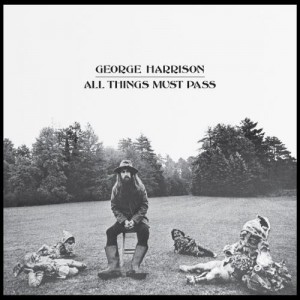 “I play a little guitar, write a few tunes, make a few movies, but none of that’s really me,” George Harrison once said. “The real me is something else.”
“I play a little guitar, write a few tunes, make a few movies, but none of that’s really me,” George Harrison once said. “The real me is something else.”
Harrison was many things – including a master of understatement. The songs he wrote focused on both the glory of God and the petty annoyances of day-to-day life.
By 1965, he had begun to lead the Beatles into folk rock through his interest in Bob Dylan and the Byrds, and towards Indian classical music through his use of the sitar on “Norwegian Wood (This Bird Has Flown)“.
George’s Spiritual Journey
Having initiated the band’s embracing of Transcendental Meditation in 1967, he subsequently developed an association with the Hare Krishna movement.
Regarding other faiths he once remarked: “All religions are branches of one big tree. It doesn’t matter what you call Him just as long as you call.” He commented on his beliefs:
“Krishna actually was in a body as a person … What makes it complicated is, if he’s God, what’s he doing fighting on a battlefield? So this is the point – that we’re in these bodies, which is like a kind of chariot, and we’re going through this incarnation, this life, which is kind of a battlefield. The senses of the body … are the horses pulling the chariot, and we have to get control over the chariot by getting control over the reins. And Arjuna in the end says, “Please Krishna, you drive the chariot” because unless we bring Christ or Krishna or Buddha or whichever of our spiritual guides … we’re going to crash our chariot, and we’re going to turn over, and we’re going to get killed in the battlefield. That’s why we say “Hare Krishna, Hare Krishna“, asking Krishna to come and take over the chariot.
After the Beatles’ break-up in 1970, Harrison released the triple album All Things Must Pass, a critically acclaimed work that produced his most successful hit single, “My Sweet Lord“,
My Sweet Lord
Harrison wrote “My Sweet Lord” in praise of the Hindu god Krishna. The lyrics serve as a call to abandon religious sectarianism through his deliberate blending of the Hebrew word hallelujah with chants of “Hare Krishna” and Vedic prayer.
If Not For You
Bob Dylan recorded “If Not for You” for his album New Morning, on August 12, 1970. Harrison thought enough of the song to record it in London for All Things Must Pass.
Hear me Lord
“Hear Me Lord” was the last track on side four of the original LP format and is generally viewed as the closing song on the album. The song is in the gospel-rock musical style and the lyrics take the form of a personal prayer, in which Harrison seeks help and forgiveness from his deity. Along with “My Sweet Lord”, it is among the most overtly religious selections on All Things Must Pass.
Give Me Love (Give Me Peace On Earth)
“Give Me Love (Give Me Peace on Earth)” is the opening track of his 1973 album Living in the Material World. It was also issued as the album’s lead single, in May that year. It became Harrison’s second US number 1, after “My Sweet Lord”.

How wonderful to know this about him! I think it is amazing that he was able to find any shred of spirituality for himself, given the intense scrutiny he experienced. Perhaps the only privacy he ever had was to go within.
Interesting.
Here is some more information on the subject: https://www.christianitytoday.com/ct/2012/mayweb-only/georgeharrison.html
Great article on George! I had no idea.